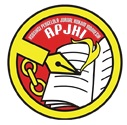THE ROLE OF SHARIA FINANCIAL SERVICES IN REDUCING THE RATE OF MIGRANT LABOR
(1) IAIN Syekh Nurjati
(2) IAIN Syekh Nurjati
(*) Corresponding Author
Abstract
Abstract
This article confirms that Islamic financial services initiate and carry out local economic empowerment in the regions. The study will be carried out in areas that have so far been considered to be major suppliers of Indonesian Migrant Workers (TKI) abroad. One of them is looking at the role of Islamic financial services in the form of the treasury of Money and Finance (BMT) and Sharia cooperatives, which are currently emerging in the community. The role of Islamic financial services in several regions was able to restrain the flow of migration abroad. The method developed is to provide various forms of financial services as business capital.
Keywords: Migrant Workers; Sharia Financial Institutions; Sharia Financial Services.Full Text:
PDFReferences
Abbela, Manolo, 1992. "The Troublesome Gulf: Research on Migration to the Middle East" in Asian and Pacific Migration Journal, 1 (1): 145-167.
Frenkel, I (1983). “Socio-Economic Development and Rural-Urban Migration and Poland†in AS Oberai (ed) State Policies and Internal Migration: Studies in Market and Planned Economies. New York; St. Martin's Press.
Gardner, R. W, (1992). "Asian Immigration: The View From The United States" in Asian and Pacific Migration Journal, 1 (1): 64–99.
Goma, Johana Naomi, 1993. Mobility of East Flores Workers to Sabah, Malaysia and Its Influence on the Region of Origin. Case Study of Neleren Region, Adoanru, East Flores Regency, Yogyakarta: UGM Master's Thesis, not published.
Hardum, S. Edi, (2016). Human Trafficking Under the Guise of Sending Migrant Workers, Cet. 1st, Yogyakarta: Ar Ruzz Media
Haris, Abdul, (1997). Illegal Mobility of Sasak People to West Malaysia: Process and Impact on the Region of Origin, Yogyakarta, UGM Master's Thesis, unpublished.
Haris, Abdul, (2003). Rainfall and the Pace of Development, Yogyakarta, Student Library.
Hugo, Graeme J, (1993). "Indonesian labour migration to Malaysia: Trends and Policy Implications" in South-Asian Journal of Social Sciences. Vol. 21. No. 1
Hugo, Graeme J, 1994. 'Urbanisation in Indonesia: City and Countryside Linked' in Josep Gugler (ed), patterns of third word urbanisation. London: Oxford University
Presidential Instruction Number 6 of 2006 concerning Reform Policy
Karsidi, Ravik, Role and Function of Rural Financial Institutions.https://digilib.uns.ac.id/document/detail/1886/PERAN-DAN-FUNGSI-RURAL-FINANCIAL INSTITUTIONS, accessed October 15, 2021, 16.30 WIB
Mantra, Ida Bagoes, "Population Mobility and The Link Between Migrants and The Family Back home in Ngawis Village, Gunungkidul Yogyakarta" in the Indonesian Journal of Geography, No. 55. Vol. 18 (47-62)
Mantra, Ida Bagoes, 1989, Circular population mobility from villages to cities in Indonesia. Yogyakarta: PPK UGM
Muhammad, 2020, Banks and Other Sharia Financial Institutions, Cet. 1st, Bandung: PT Rajagrafindo Persada
Muheramtohadi, Singgih, The Role of Sharia Financial Institutions in Empowering MSMEs in Indonesia, Jurnal Muqtasid, 8(1) 2017: 65-77.https://muqtasid.iainsalatiga.ac.id/index.php/muqtasid/article/view/1079/733.accessed on October 10 2021, 18.30 WIB.
Nayyar, Deepak, (1994). Migration, Remittances, and Capital Flows, The Indian Experience: New Delhi: University Press.
RegulationsPresident Number 81 of 2006 concerning the National Agency for the Placement and Protection of Indonesian Workers (BNP2TKI)
Regulation PeOrder Number 10 of 2020 concerning Procedures for Placement of Indonesian Migrant Workers
RegulationGovernment Number 3 of 1947 concerning the Ministry of Labor
Regulation PeOrder Number 23 of 2018 concerning MSME Income Tax
RegulationPresident Number 90 of 2019 concerning the Indonesian Migrant Worker Protection Agency
Rahman, M Fauzi A (Editor), 2020, Unconventional Issues in International Relations for Beginners, Cet. 1st, Jakarta: Griya Media
Singh, J P, (1992). Migration in India: A Review†in Asian and Pacific Migration Journal, 1 (1): 168–192).
LawLaw Number 10 of 1998 concerning amendments to Law Number 7 of 1992
LawLaw Number 13 of 2003 concerning Employment
LawLaw Number 18 of 2017 concerning the Protection of Indonesian Migrant Workers
LawLaw Number 21 of 2007 concerning the Eradication of Human Trafficking
LawLaw Number 21 of 2008 concerning Sharia Banking
LawLaw Number 23 of 2002 concerning Child Protection
LawLaw of the Republic of Indonesia Number 23 of 2014 concerning Regional Government
LawLaw Number 39 of 1999 concerning Human Rights
Law Number 39 of 2004 concerning the Placement and Protection of TKI
Law Number 7 of 1992 concerning Banking
Wijaya, L Sastra, PJTKI is a Problem, Not a Solution,https://megapolitan.kompas.com/read/2013/04/13/15343711/pjtki.jadi. Problem accessed on October 12, 2021, at18.30 WIB
Zlotnik, Hania, 1992, "Empirical Identification of International Migrantion Systems" in International Migration Systems, A Global Approach, edited by Mary M Kritz, et.al., Oxford: Clarendon Press.
DOI: 10.24235/jm.v8i2.15318
Article Metrics
Abstract view : 61 timesPDF - 15 times
Refbacks
- There are currently no refbacks.





